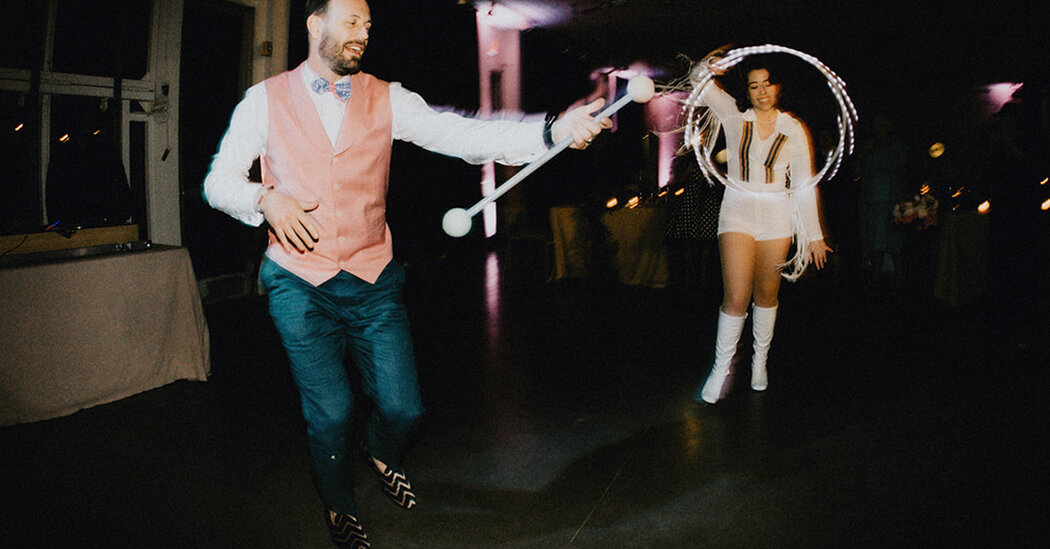
When Stephen Le Duc posted on a Reddit forum proposing a meet-up at a music festival, he had no idea he would meet his future wife.
In 2019, Mr. Le Duc, a mechanical engineer, was headed solo to the Electric Daisy Carnival in Las Vegas, an annual dance music festival. He met up with Olivia Le Duc, then Olivia Brents, who had responded to his post, and soon realized they shared not only a love of raves, but also swing dancing and retro culture. At the festival, they fell in love.
Two years later, at that same festival, Mr. Le Duc, now 38, traded “kandi” — beaded bracelets typically exchanged at a rave — with Ms. Le Duc, a 28-year-old e-commerce merchandiser. The beads spelled out “marry me.”
The couple, who live in Long Beach, Calif., knew from the start that they wanted an unconventional celebration; their families did not. When his wife’s grandmother suggested a church wedding, “I was like, ‘Oh, no, that can’t happen,’” Mr. Le Duc said, with a laugh.
In recent years, many couples have swapped out more traditional receptions for raves and all night dance parties, prioritizing the music over (almost) all else. Celebrations can range from rave-themed after parties to million dollar, multiday productions that rival a music festival. On The Knot, a wedding planning site and vendor marketplace, searches for electronic dance music genre D.J.s jumped 156 percent in the first nine months of this year from the same period a year ago.
“I think couples are really feeling empowered to reimagine tradition,” said Hannah Nowack, the senior weddings editor at the Knot. “Weddings aren’t one size fits all.” Décor like disco balls, neon lights and LED dance floors — things that make dancing “a focal point” — are popular, she said.






